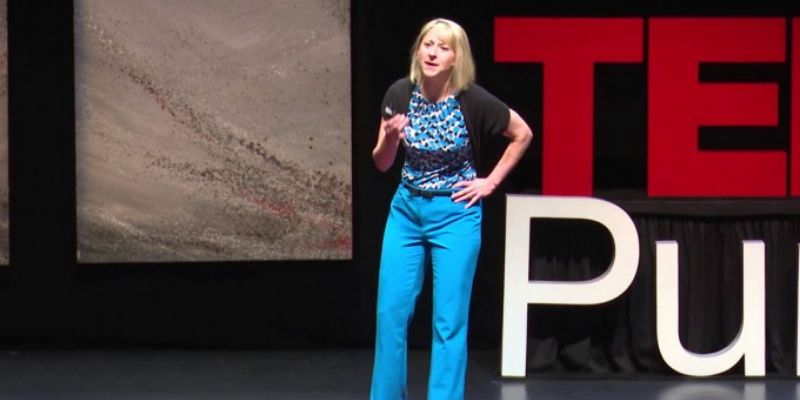In the world of online health content, few videos have had the impact of Dr. Sarah Hallberg’s 2015 TEDx talk, “Reversing Type 2 Diabetes Starts with Ignoring the Guidelines.”
With over 12 million views to date, the talk has inspired countless individuals to explore low-carbohydrate nutrition as a way to manage or even reverse type 2 diabetes.
The ground-breaking video details how the low carb and ketogenic approach can support type 2 diabetes reversal.
But if you revisit the video now, you’ll notice something that wasn’t there before: a prominently displayed editorial disclaimer from TED.
A disclaimer – a recent addition – marks a shift in how TED positions the talk within its broader content ecosystem:
NOTE FROM TED: Do not look to this talk for medical advice. Significantly restricting dietary carbohydrates can have serious adverse health consequences for patients with type 2 diabetes, including ketosis. Always consult a medical professional before modifying diet or medication. This talk only represents the speaker’s personal views and understanding of diet and type 2 diabetes.
So, why the change? And what does it mean for those who have found value in the video?
Impact of Hallberg’s talk
Dr. Hallberg’s talk was a turning point for many living with type 2 diabetes.
It challenged conventional dietary guidelines, promoted low-carb interventions and argued that remission – not just management – was possible.
For years, it stood on the TEDx platform without qualification, embraced by a growing community of clinicians and patients advocating for metabolic health through lifestyle change.
The speaker herself was a respected physician and researcher and her message resonated particularly because it presented real-world data, patient stories, and a challenge to status-quo treatment pathways that often focused on pharmaceutical intervention over lifestyle modification.
- Low carb intake associated with metabolic benefits of short-term fasting
- Study finds long-term benefits of low carbohydrate diets in type 2 diabetes treatment
- Metabolic health pioneer Dr Sarah Hallberg passes away from lung cancer
Why now?
The addition of the disclaimer appears to be part of a broader trend toward content moderation and platform responsibility.
As public health conversations increasingly unfold on YouTube, TED and other platforms have come under pressure to clarify when talks reflect personal perspectives rather than consensus medical guidance.
Low-carbohydrate diets, while endorsed by some studies and clinical bodies (including in recent NICE guidance for type 2 diabetes remission), remain contentious in some circles, particularly when discussed without medical supervision.
TED’s disclaimer seems to respond to concerns that individuals may self-diagnose or drastically change their treatment plans based on a talk – no matter how compelling – without consulting healthcare professionals.
It’s worth noting that the disclaimer was not present for many years, suggesting that TED either received complaints or sought to align with evolving health misinformation policies across platforms.
What does this mean for viewers?
The content of Dr. Hallberg’s talk has not changed – but its context has.
For those who found the message empowering, the disclaimer is unlikely to diminish its impact.
However, it does serve as a reminder of the importance of medical oversight when making lifestyle or treatment changes, especially with a condition as complex as diabetes.
In reality, many clinicians now embrace the role of low-carbohydrate approaches and peer-reviewed evidence supporting dietary interventions in diabetes remission continues to grow. But as with all health content, one-size-fits-all messaging can carry risks, particularly when viewed in isolation.
It also highlights an important tension: how do platforms preserve freedom of thought and innovation in healthcare, while protecting viewers from potential harm?







